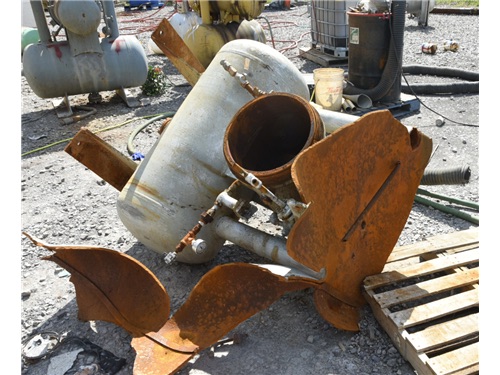Undeclared chemicals in old gas containers may have been the source of two fatal explosions at Midland Resource Recovery in Philippi, WV earlier this year, according to a new report from the U.S. Chemical Safety Board (CSB). The May 24 and June 20 explosions killed three people and injured a third at the company

Midland provides gas odorization products and services. Odorization is the process of adding a foul-smelling chemical to odorless gasses to serve as a warning if there is a gas leak. Mercaptan, an odorant often added to natural gas and propane, smells similar to rotten eggs. It’s an effective warning, the rotten-egg smell is hard to miss.
But Mercaptan is as stubborn as it is stinky, clinging to old equipment long after its last use. The smell needs to be removed before old equipment can be scrapped. If it’s not, it can create a false alarm of gas leak at the scrapyard. The process of removing the smell is called decommissioning. It’s a service Midland provides and was performing when both explosions occurred.
May 24 Midland Explosion
To neutralize the odor of mercaptan, a sodium hypochlorite solution is added to a tank or container and it is left to sit for some time. Then the fluid is drained and the containers are ready to be cut into scrap metal.
On May 24, a three-man crew was draining a number of tanks when one of them exploded. Killed in the blast were Midland President Jan Strmen, 72, of Canada, and Justin Marsh, 19, of Philippi, WV. The name of the third man, who was seriously injured in an explosion, was not released. He was hospitalized at Ruby Memorial Hospital in Morgantown.
June 20 Midland Explosion
One month later, a contract crew from Specialized Professional Services Inc. was hired to finish the process of draining the tanks. Shortly after they began work, another tank exploded killing a 47-year-old crew member and injuring another. At the time of the June 20 Midland explosion, investigators from the Occupational Safety and Health Administration (OSHA) said an unidentified chemical or chemicals in the tanks had rendered them unstable.
The new CSB report echoes that assessment. “The explosions likely occurred when unintended chemical reaction(s) caused highly reactive or unstable chemicals to form in the respective vessels, which resulted in the two explosions,” it states. The investigation is ongoing.